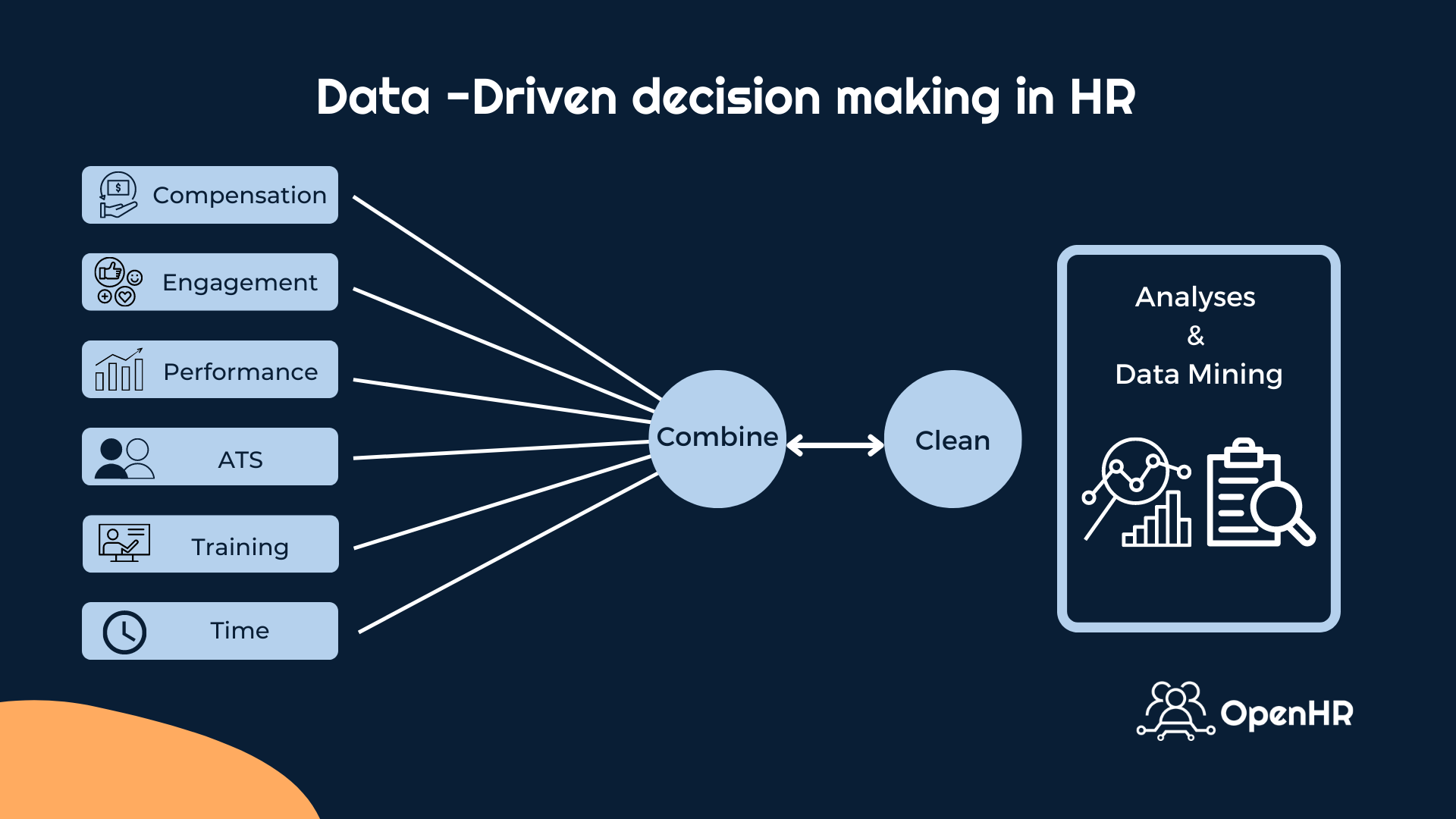HR analytics is a methodology and management system aimed at human resources professionals who analyze employee data and their relationship with the company.
It is not only an analysis of mathematical variables, but also a system for managing personnel and company data in order to solve problems associated with human resources practices. It also provides a better understanding of the organization and the people within it, so that decisions can be made on the basis of this information.
Key HR areas will change based on the insights gained from HR analytics. Functions like recruitment, performance management, and learning & development will change. HR analytics depends on the quality of the data collected from HR metrics, such as:
- Absenteeism rate
- Succession planning rate
- Open/closed grievances
- Promotion rate
- Time to productivity
- Successor gap rate
- Worker composition by gender, experience, and tenure.
- Function type
- Internal mobility
- Manager quality index
- HR effectiveness
- Employee satisfaction rates
- Training cost
- Attrition rate by month.

Contents
What skills does an HR Manager need?
What are the benefits for the company and HR departments?
What skills does an HR Manager need?
It is important to highlight that when we talk about HR analytics, we are not only working with data, but these data must be worked by the right people, therefore, it is essential that the people related to the human resources departments have the necessary skills to be able to make use of this new methodology, among these skills we can highlight the following:
- Effective communication, in other words, being able to inform, motivate, convince, sell and so on. Lack of this competence would render the message incapable of being conveyed, thus rendering the analysis meaningless.
- Analytical capacity, which is essential because without it we will not be able to make the necessary decisions to make the data collected as useful as possible.
- Strong leadership
- Have programming, statistical and mathematical skills.
What are the benefits for the company and HR departments?
Using this type of methodology is very useful for HR departments, as they can make strategic decisions based on concrete and real data. Having Big Data is essential to help make informed business-critical decisions, but it does not guarantee that you will be able to obtain actionable information, which is why HR analytics is necessary.
In addition, HR Analytics helps take some of the burden out of data analysis. Correlating large amounts of HR data and then trying to manually identify patterns and trends can be a complicated and time-consuming task; but by using HR Analytics tools, HR managers can easily visualize patterns and trends.
To conclude, and as if this were not enough, with HR analytics we ensure that HR departments are seen as a strategic department within the company, something that they are still struggling to achieve today.
This is achieved because HR analytics equips HR managers with a tool that enables and helps them to investigate all data in a much faster and efficient way. In addition, it also helps to enable decisions to be made that are based on solid data and facts, allowing a much more strategic approach to be taken. In the past century, HR Management has changed dramatically. It has shifted from an operational discipline towards a more strategic business one
.png?width=1584&name=CTA%20Articulo%20control%20horario%20(10).png)